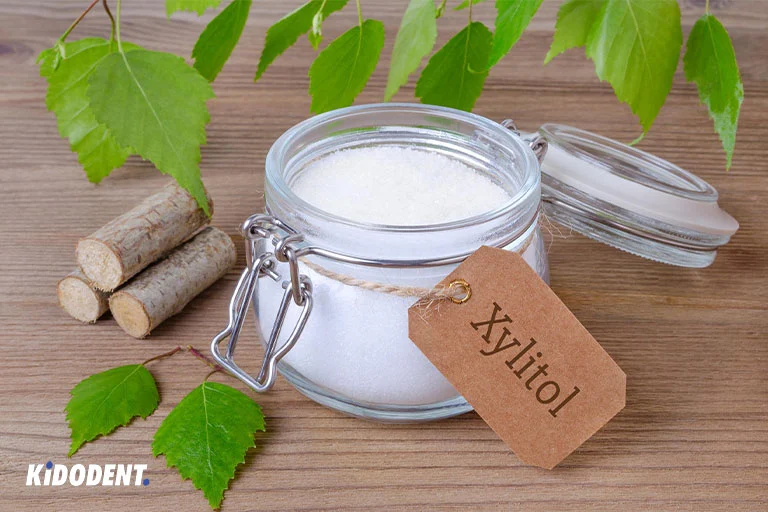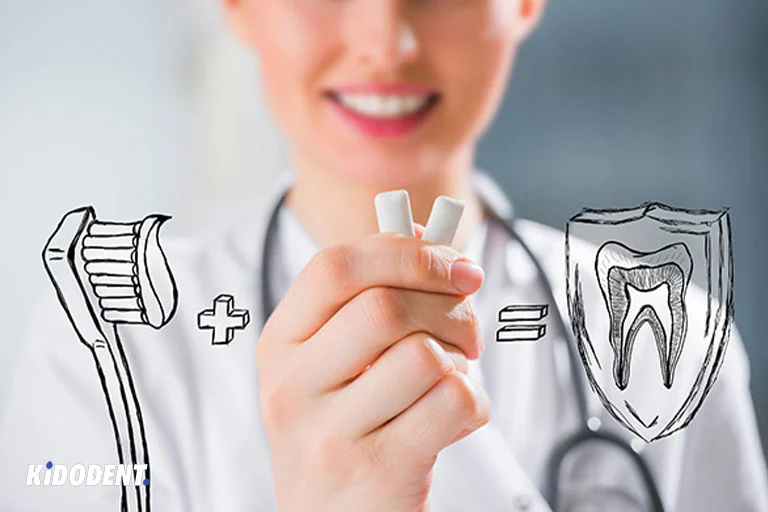Xylitol is a 5-carbonate sugar that is effective in reducing tooth decay and remineralization of the teeth. This substance is naturally found in fruits like plums, strawberries and vegetables including cauliflower and mushrooms. It can also be extracted from beech and birch trees.
Teeth health and the xylitol effectiveness
Xylitol has a sweet taste, but it doesn’t convert to acid-causing bacteria in the mouth. It is a natural sweetener and approved by FDA and ADA in that it reduces tooth decay. It can be similar to sucrose in its sweet taste, but the amount of calories is 33% lower. So, it can be a better option for diabetic and overweight people.
3 benefits of sugar in xylitol for the health of teeth and mouth
Stops infection in mouth
Xylitol not only controls decaying in teeth but also eliminates the infection-causing bacteria, which is called with the scientific name of streptococcus bacilli.
A way to prevent bad breath
Halitosis or bad breath as a result of bacteria can be reduced. For this purpose, xylitol-containing chewing gums for freshening and cooling the smell the mouth are prescribed.
Anti-bacterial properties
A chemical quality of xylitol is alkaline quality that raises PH and reduces acidity in the mouth and body. The alkaline reduces the chances of appropriate environment for bacterial growth.
Losing weight
By taking xylitol into the diet, you feel that you are full and it slows down the digestion. It is similar to high-fiber foods that you don’t feel hungry for some time. Therefore, it is a great option for people who want to lose weight.
When your stomach is full, the desire for snacks, between-meal foods and overeating is avoided. For this reason, healthy diets and balanced –calorie foods contribute to your weight loss activities.
Strengthens the immune system
Xylitol with its anti-bacterial properties is a great option against infections in different parts of the body from mouth and sinus to throat and stomach.
Diabetic friendly sugar
it can be an appropriate substitute instead of sucrose, which is a common type of sugar, for people with diabetes. GI or Glycemic Index in sugar is between 70 to100, but the amount of GI in xylitol is between 3 to7. That means, it has little impact on insulin and, as a result, it doesn’t destabilize the blood sugar balance.

How does Xylitol prevent tooth decay?
Xylitol reduces streptococcus bacteria (tooth decay-causing bacteria) in the plaque and saliva in the mouth and prevents tooth decay. This process is done through 2 unique properties:
Non fermentable quality
Bacteria can’t metabolize this type of sugar and mistake xylitol for main types of sugar. Therefore, bacteria will reduce in amounts and can’t produce harmful acids.
Anti-adhesive quality
This feature prevents bacteria from sticking on cellular tissue. The reduction of sticky properties of xylitol leads to inappropriate environment for the bacterial growth and decrease of plaque formation on teeth.
Increase of produced saliva for the prevention of tooth decay is another advantage of it. The increase of saliva can contribute to the lower PH. The balanced degree of PH prevents demineralization of teeth and even facilitates the mineralization process by providing calcium and phosphorus.
Different forms of xylitol
this is available in several forms:
- Chewing gums
- Candies
- Mint flavored tablets
- Sugar
- Some fluoridated and flavored toothpastes
- Dental floss
Scientific research and xylitol
- Research has shown that chewing xylitol flavored gums for 4 to14 days can decrease the plaque formation on teeth temporarily, but in the long run (6 months) the decay-causing bacteria, streptococcus, in the saliva and on plaque can be reduced.
- Candies containing xylitol are great choices between the meals when brushing is not possible. These candies prevent the destructive properties of produced acids.
- Candies can be useful especially for those patients with jaw problems that are not able to use chewing gums.
Consumption of xylitol
Today, sugar-free chewing gums to prevent tooth decay among children and adults have gained popularity in many countries. At least 10 grams of per day (includes 4 to 7 flavored gums) are recommended for tooth decay prevention.
Frequent use of xylitol in proportion to the amount of it is important in reducing the tooth decay process. These frequent uses of can be 4 to 6 times per day or 20 to 70 grams in a day, which can be harmless.
Pay attention
There are advantages that we have mentioned about xylitol, but keep it away from your pets especially dogs. Their bodies mistake it as glucose and it causes hypoglycemia or low blood sugar.
